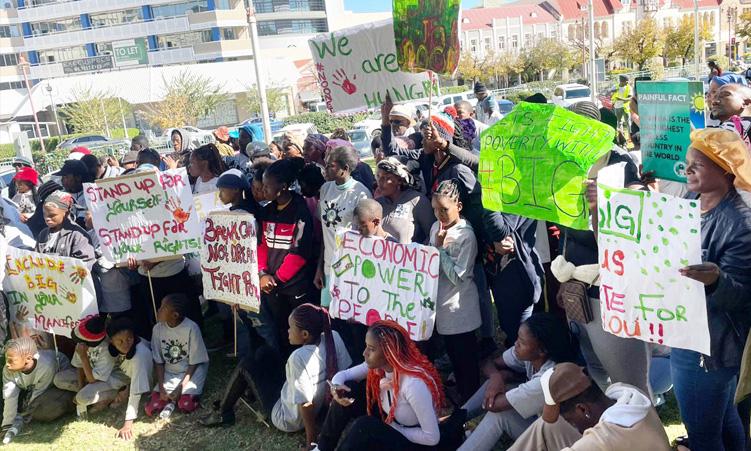Former minister of education, arts and culture Katrina Hanse-Himarwa is remembered for her role in reforming the ministry, yet her political career was overshadowed by a corruption conviction.
Known as ‘Mutti’, she died on 14 July at the age of 57, leaving behind her husband, Ghenno Himarwa, four children and three granddaughters.
She will be laid to rest at Mariental on 27 July.
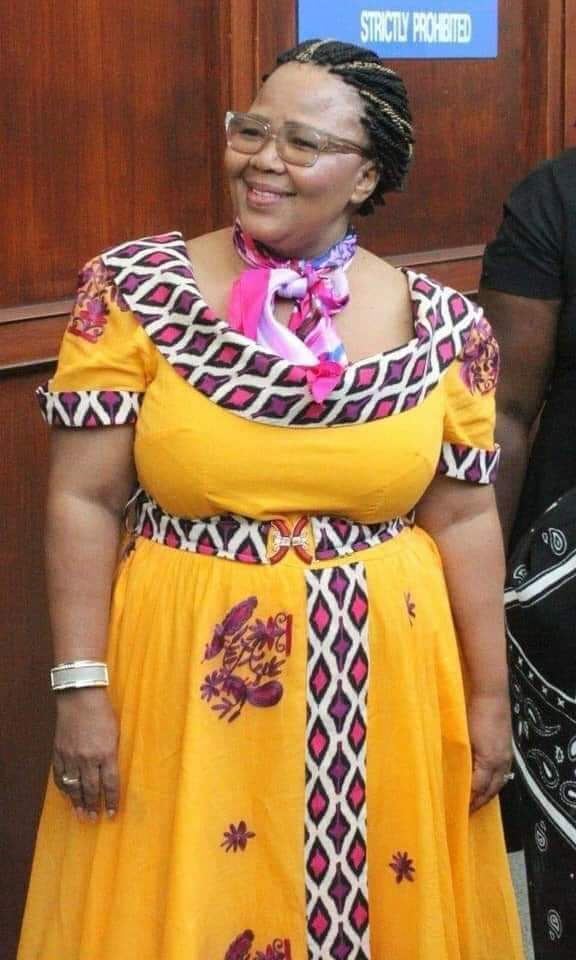
To family, colleagues and friends, Hanse-Himarwa was a straight-talking politician.
But she faced several corruption charges over the years.
A High Court judge in 2019 found that Hanse-Himarwa corruptly used her office as Hardap governor and misled the court in a highly publicised court case.
“The state has proven the accused person’s guilt beyond reasonable doubt, and it has been established that the accused clearly abused her power to her satisfaction, ensuring that at least one of her relatives benefited from the mass housing project,” judge Christi Liebenberg said in his verdict in July 2019.
Hanse-Himarwa’s daughter, Philaney Himarwa, says the case has deeply affected the family.
“Despite the legal outcomes, our perception of her loyalty and integrity remained steadfast.
“Surprisingly, we found unexpected support from people who stood by us during this difficult time, which has brought our family closer together,” she says.
Philaney says the negative attention on social media and “insensitive comments from others had a profound psychological and emotional impact on us as children”.
‘MUTTI’
Hanse-Himarwa was born on 22 January 1967 to Aletha and Josephat Hanse at Hoaxa!nas in the Hardap region.
Her mother remembers the day she held her daughter in her arms for the first time.
She was adamant that she should be called ‘Mutti’, which means ‘mother’ in German.
“When I first held her in my arms and she cried, I couldn’t help but thank the Lord for her. She was born at home, with her father’s sister assisting with the birth. At that moment, I told my sister-in-law that her name should be Mutti,” Aletha says.
She says her daughter, who was born the sixth of twelve children, wanted to be a lawyer from a young age.
“She was a lively and busy girl with a free nature, but was very smart. She dreamed of becoming a lawyer. That interest persisted, leading her to study law for a year or two before she pursued her passion for education,” Aletha says.
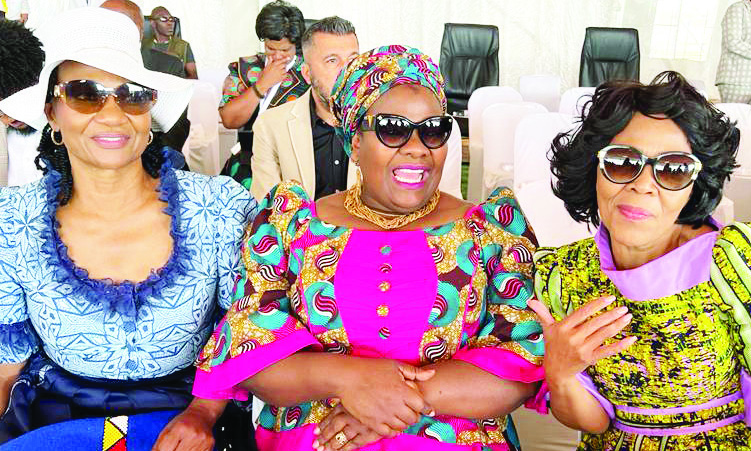
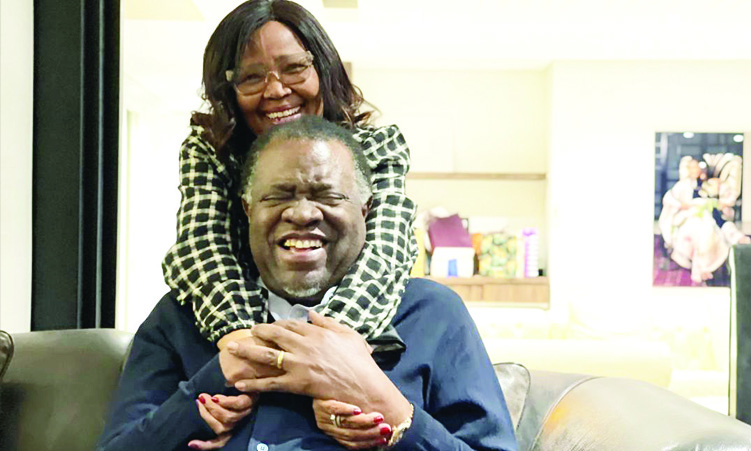
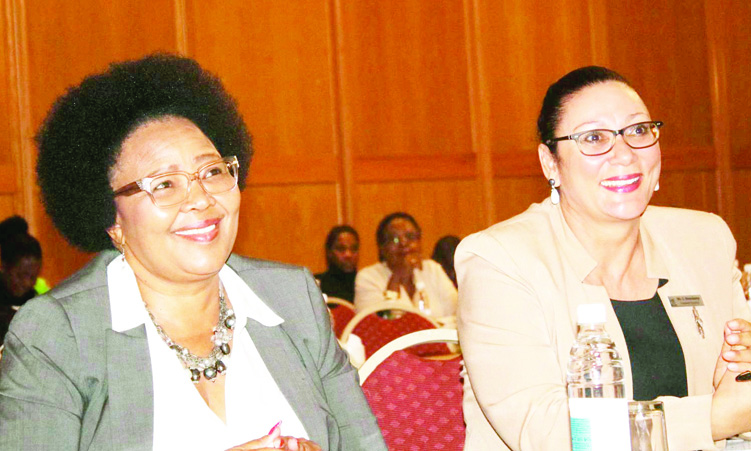
Hanse-Himarwa obtained a basic education teacher’s diploma in 1995, and a bachelor’s degree in education management technology in 1999.
She has worked as a teacher and was a school principal in 1987.
She was a student at the Windhoek College of Education from 1993 to 1995, and the following year, she returned to Rubidium JSS at Aranos as a teacher until 2001.
During that year, she was appointed as the school’s head of department, and subsequently was its principal until 2004, when she joined active politics.
Michael Haman, a cousin of Hanse-Himarwa, recalls how the former governor presided over family gatherings and took it upon herself to make sure everyone pronounced Nama words properly.
“She would call me and tell me ‘you must pronounce this word like this, and this word is like this, do research’,” he says.
“She would not hesitate to turn anything into a lesson. To say ‘no, I can’t do that’ was not good for her. You must try.”

JOURNEY
During her political career, during which she backed Hage Geingob as the country’s first non-Oshiwambo-speaking president, Hanse-Himarwa became known as ‘Hurricane Katrina’.
Her team cemented Geingob’s ascent to both the party’s and the country’s top post.
In December 2022, Geingob nominated Hanse-Himarwa alongside lawyer Sisa Namandje to Swapo’s politburo.
In one of her final interviews, she disclosed that Geingob would not allow anyone else to call her ‘Hurricane Katrina’, but him.
Her mother suspects that her political awakening came when she would watch the interactions between herself and employers at the time.
“As a domestic worker, I observed her keenly and wondered what thoughts were crossing her mind as she interacted with both myself and the white people I worked for at the time,” Aletha says.
“I believe this ignited her desire to advocate justice and equality for all.”
Hanse-Himarwa was in 1994 elected as local authority councillor for Swapo to the Aranos Town Council, a position she held until 2004 when she became the Swapo regional councillor for the Mariental Rural constituency.
She was the first woman to be elected as Hardap regional councillor, and the first Swapo councillor to be elected from that constituency.
In 2011, she was elected as Swapo Party Women Council information and mobilisation secretary, and she was elected to the politburo in 2012.
Between 2012 and 2017 she was also elected to Swapo’s central committee as its secretary of labour.
Hanse-Himarwa became one of the first woman regional governors in Namibia when she assumed office in 2004, a position she served in until 2015, when she was elevated to being a minister.
Deputy minister of finance and public enterprises Maureen Hinda-Mbuende says Hanse-Himarwa was a torchbearer.
“She was extremely brave, a trendsetter in fashion, and a linguist of note,” she says.
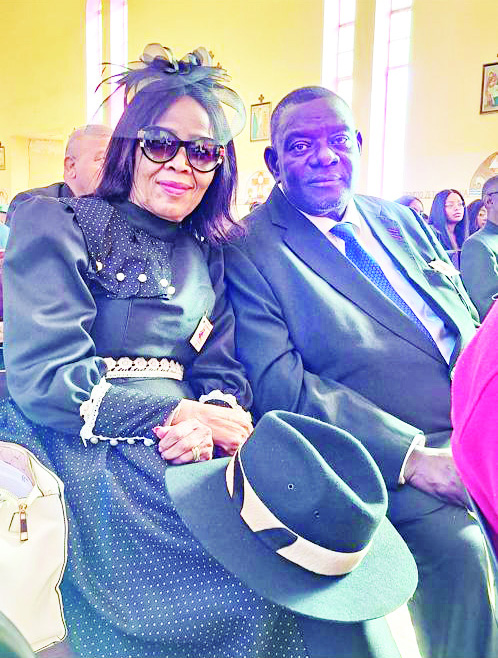
CONTROVERSIES
The Namibian in 2019 reported that four witnesses, including former Mariental mayor Alex Kamburute testified in the Windhoek High Court that he was contacted by Hanse-Himarwa on 16 December 2015 to go to her office to attend a meeting.
During this meeting a list of housing beneficiaries was discussed, about which the governor was unhappy.
According to her, Kamburute testified, there were people in dire need of houses.
She then removed the names of Piet Fransman and Regina Kuhlman from the list, replacing them with those of Josephine Gowases and Christiana Hanse – relatives of her.
In July 2019, judge Liebenberg in his judgement said: “It was duly established that the accused as governor of the Hardap Region clearly abused the power and authority vested in her office when insisting that the list of beneficiaries under the mass housing be amended to her satisfaction . . .”
Hanse-Himarwa labelled the case against her a witch-hunt, denying guilt and any wrongdoing.
Her attempt to appeal the conviction was refused.
Hinda-Mbuende, however, says: “I exonerated you, as I still hold the view that it was conspiracy, poor advice and representation which allowed your political career to be short-lived.”
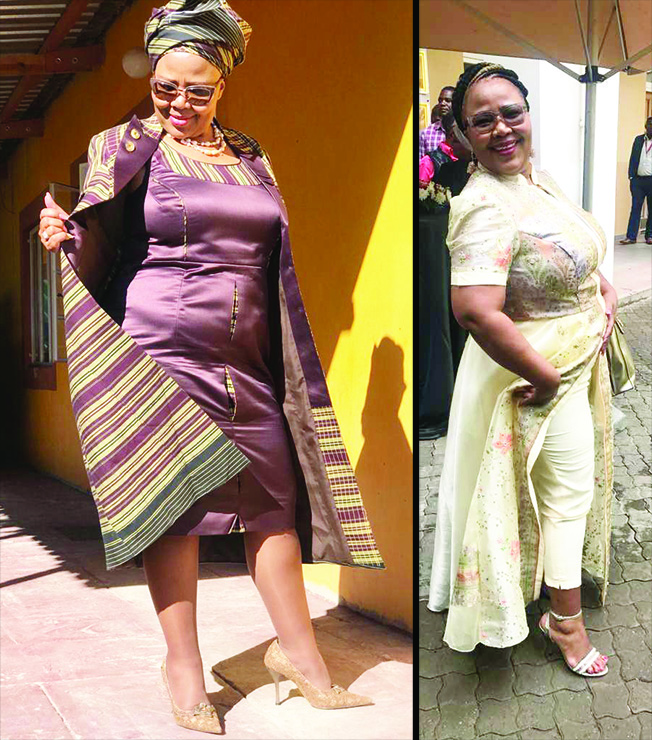
FASHIONISTA
Deputy minister of urban and rural development Eveline Nawases-Taeyele describes Hanse-Himarwa as a big sister, a comrade and a friend who was particular about her looks.
They were friends for 22 years.
“I came to know her in 2002 during a youth festival trip to Algeria. She was heavily pregnant with her last-born son. Upon arrival, her feet and legs were swollen, but she kept working. That’s when I spotted her,” she says.
Nawases-Taeyele says Hanse-Himarwa always stood out.
“Her character, personality and activeness made people notice her,” she says.
She says Hanse-Himarwa liked to express how she felt about issues.
“She was very open and never had hidden agendas,” Nawases-Taeyele says.
Hanse-Himarwa was particular about her appearance.
“She made sure her hair was always on point, that she was dressed well, and that her handbags and shoes matched. She loved her heels. She loved expensive stuff,” she says.
“She would always tell me you have to look good, you never know who you’re meeting.”
Minister of environment, forestry and tourism Pohamba Shifeta says Hanse-Himarwa was a straight talker.
“Mutti was one of those people who called a spade a spade,” he says.
Shifeta visited Hanse-Himarwa in her last days.
“She was not looking good. She was strong, but you could see she was in a lot of pain. She kept mentioning that the pain was too much and that she was tired,” he says.
“But she had hope, saying ‘don’t worry, I’m okay, God is there, God will save me’.”
Nawases-Taeyele says Hanse-Himarwa loved flowers.
“She told me when she dies she wants to be sent off with a lot of flowers.”
Nawases-Taeyele says the former minister was prepared to leave the world.
“She made peace with a lot of things. She would tell me that things of the world meant little to her, and in the process would speak mostly about drawing closer to God. She asked that I help look after her family,” she says.
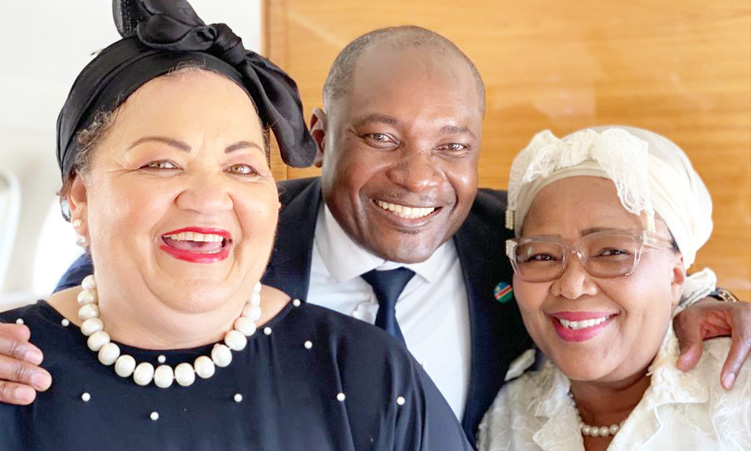
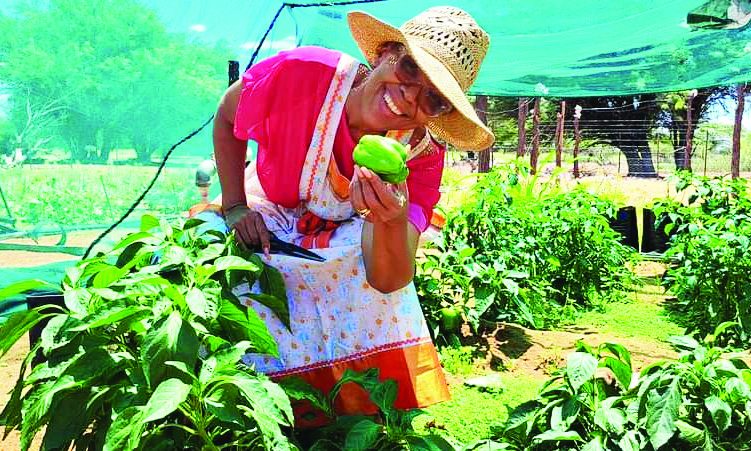
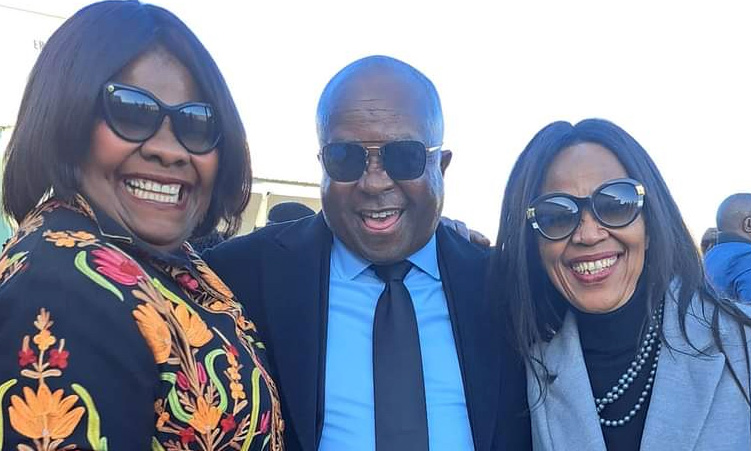
LEGACY
Executive director of educatin, arts and culture Sanet Steenkamp worked with Hanse-Himarwa from 2015 to 2019 and says her former boss was a champion for the marginalised and children.
“She travelled around Namibia to help them. She had a presence. When she entered the room, you would know she was there, not only because of her classiness and style, but also her beaming personality,” she says.
Steenkamp says Hanse-Himarwa never hesitated to assert her authority.
“She listened to people, and after she had listened . . . she would be there looking at you, rolling a pen in her hand, and then asserting her authority,” she says.
“I loved Katrina, and you could either love or hate her. When we had debriefings, and there were so many negative reports on her, journalists would wait for the right moment to snap the camera when her eyes were fierce and when she pointed a finger. She was unapologetic about issues.”
Stay informed with The Namibian – your source for credible journalism. Get in-depth reporting and opinions for
only N$85 a month. Invest in journalism, invest in democracy –
Subscribe Now!



